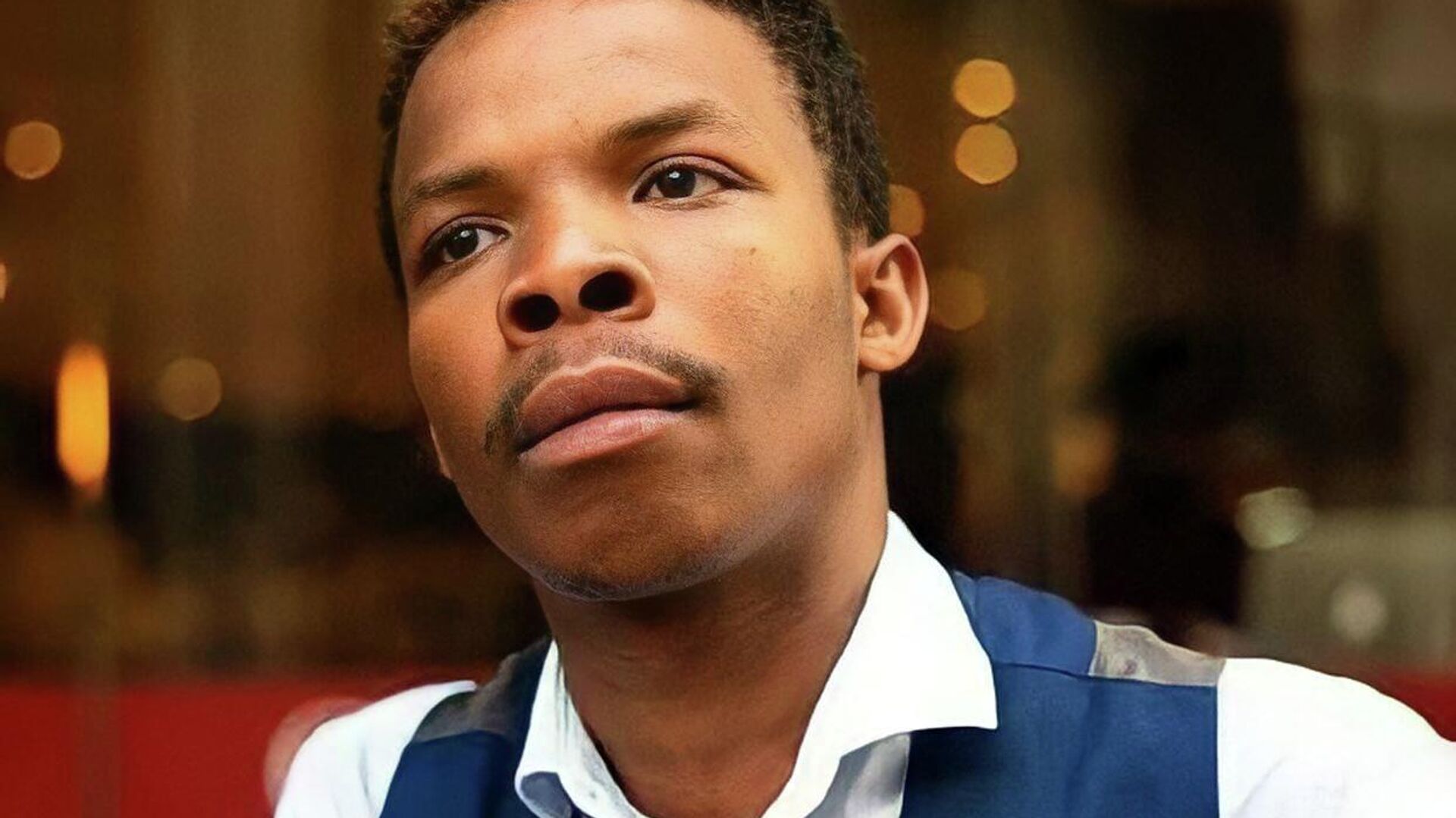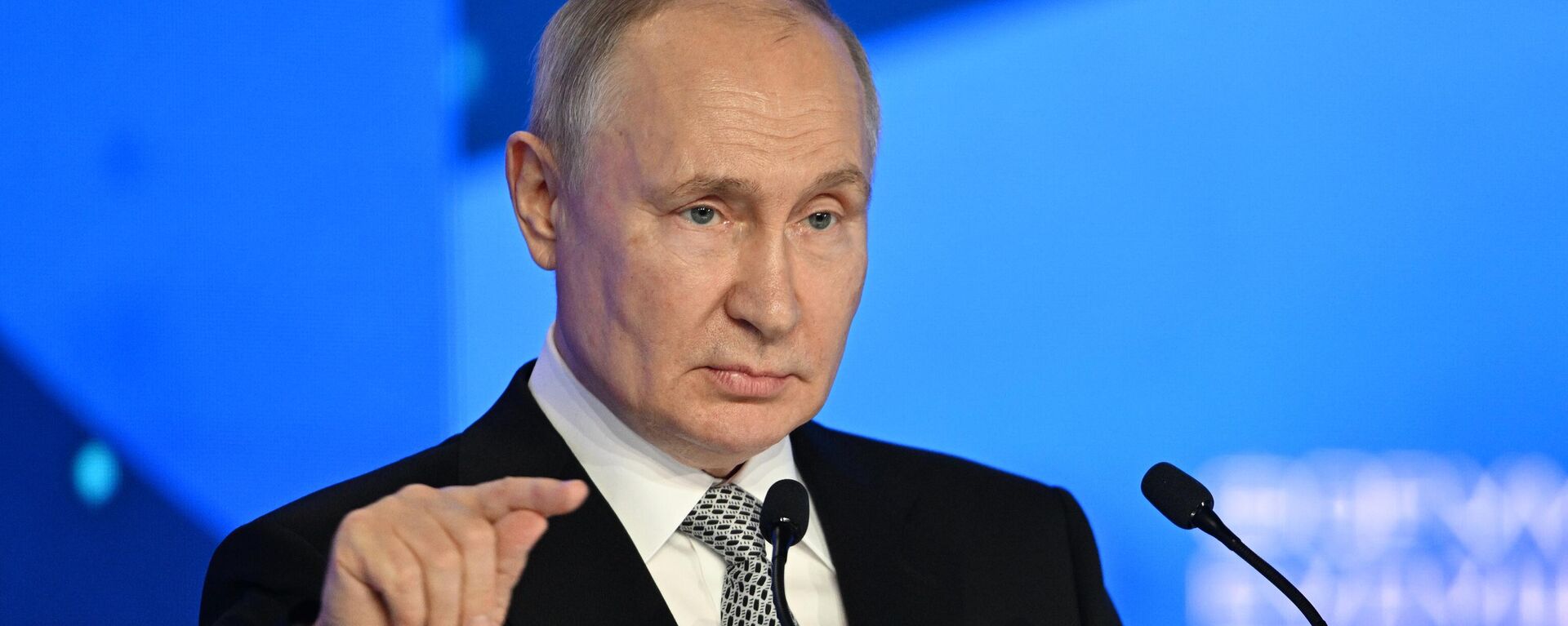https://en.sputniknews.africa/20230822/mandelas-great-grandson-calls-for-stronger-ties-with-russia-at-brics-summit-1061529324.html
Mandela's Great-Grandson Calls for Stronger Ties with Russia at BRICS Summit
Mandela's Great-Grandson Calls for Stronger Ties with Russia at BRICS Summit
Sputnik Africa
On August 22-24, the South African city of Johannesburg is hosting the 15th BRICS Summit, where leaders will discuss trade, political and economic cooperation... 22.08.2023, Sputnik Africa
2023-08-22T18:08+0200
2023-08-22T18:08+0200
2023-08-22T18:08+0200
2023 brics summit in johannesburg
southern africa
south africa
russia-africa cooperation
nelson mandela
brics
brics summit
https://cdn1.img.sputniknews.africa/img/07e7/08/16/1061536926_0:147:1244:846_1920x0_80_0_0_3777332e6bbc878a6907e9e85876a656.jpg
South African socio-economic analyst Mayibuye Mandela, the great-grandson of former President Nelson Mandela, expressed his desire for expanded international relations and closer ties with Russia during an interview with Sputnik Africa on the sidelines of the 15th BRICS Summit held in Johannesburg.Mayibuye Mandela, who works for African Innovation Solutions, praised Russia for its support during South Africa's struggle for liberation. He highlighted the significant contributions made by Russia, which went beyond mere rhetoric and provided substantial resources that aided South Africa's journey towards freedom and an equal society.Mandela added, "We, the youth of South Africa, want to create a clear and transparent relationship with Russia."Drawing attention to the challenges facing South Africa's cooperation with Russia, the socio-economic analyst expressed concern about a recent controversy surrounding the International Criminal Court (ICC), which prevented Russian President Vladimir Putin from visiting South Africa (which is part to the court) to attend the 15th BRICS Summit.In mid-March, the ICC issued arrest warrants for Vladimir Putin for allegedly forcibly removing Ukrainian children from the area of hostilities between Russian and Ukrainian forces. The Moscow repeatedly stated that children were voluntarily relocated from dangerous areas and that some of them, whose homes are now safe, have returned.Stressing the need for clarity, the young Mandela emphasized that the incident was not due to a lack of willingness on the part of South Africa, but rather a legal constraint. He called for a joint effort to prevent external influences from manipulating their relationship.In terms of future prospects, Mayibuye Mandela embraced the idea of enhancing collaboration between Russia and South Africa in the fields of education and agriculture to ensure food security in Africa. He advocated for an open exchange of agriculture practices and technologies, emphasizing that transparency would foster closer ties and build trust. He also urged both countries to consider each other a second home.The socio-economic analyst also expressed his support for the establishment of a common trading currency in the framework of the BRICS economic alliance, which includes Brazil, Russia, India, China and South Africa.Reflecting on his own experience during his recent visit to Russia for the second Russia-Africa Summit in St. Petersburg in late July, Mandela highlighted the difficulties he faced in accessing funds due to existing Western sanctions on the Russian banking system.Mandela voiced his opposition to such measures, stating that the West "must also sanction South Africa."
https://en.sputniknews.africa/20230803/1061044927.html
southern africa
south africa
Sputnik Africa
feedback@sputniknews.com
+74956456601
MIA „Rossiya Segodnya“
2023
Muhammad Nooh Osman
https://cdn1.img.sputniknews.africa/img/07e7/04/0a/1058467512_0:0:1280:1280_100x100_80_0_0_ec723833bcbfcaed2e21952965ad99e4.jpg
Muhammad Nooh Osman
https://cdn1.img.sputniknews.africa/img/07e7/04/0a/1058467512_0:0:1280:1280_100x100_80_0_0_ec723833bcbfcaed2e21952965ad99e4.jpg
News
en_EN
Sputnik Africa
feedback@sputniknews.com
+74956456601
MIA „Rossiya Segodnya“
Sputnik Africa
feedback@sputniknews.com
+74956456601
MIA „Rossiya Segodnya“
Muhammad Nooh Osman
https://cdn1.img.sputniknews.africa/img/07e7/04/0a/1058467512_0:0:1280:1280_100x100_80_0_0_ec723833bcbfcaed2e21952965ad99e4.jpg
southern africa, south africa, russia-africa cooperation, nelson mandela, brics, brics summit
southern africa, south africa, russia-africa cooperation, nelson mandela, brics, brics summit
Mandela's Great-Grandson Calls for Stronger Ties with Russia at BRICS Summit
Muhammad Nooh Osman
Writer/Editor
On August 22-24, the South African city of Johannesburg is hosting the 15th BRICS Summit, where leaders will discuss trade, political and economic cooperation, and de-dollarization. They will also consider expanding the group's membership to include other emerging economies.
South African socio-economic analyst
Mayibuye Mandela, the great-grandson of former President Nelson Mandela, expressed his desire for expanded international relations and closer ties with Russia during an interview with
Sputnik Africa on the sidelines of the
15th BRICS Summit held in Johannesburg.
Mayibuye Mandela, who works for African Innovation Solutions, praised Russia for its support during South Africa's struggle for liberation. He highlighted the significant contributions made by Russia, which went beyond mere rhetoric and provided substantial resources that aided South Africa's journey towards freedom and an equal society.
"Russia, during the struggle for liberation in South Africa, they didn't assist us in their rhetorical capacity. They were placing resources for us to win the struggle. So we will always be there for Russia, dark days and clean days."
Mayibuye Mandela
Great-grandson of former South African President Nelson Mandela
Mandela added, "We, the youth of South Africa, want to create a
clear and transparent relationship with Russia."
Drawing attention to the challenges facing South Africa's cooperation with Russia, the socio-economic analyst expressed concern about a recent controversy surrounding the International Criminal Court (ICC), which prevented Russian President Vladimir Putin from visiting South Africa (which is part to the court) to attend the 15th BRICS Summit.
In mid-March, the ICC
issued arrest warrants for Vladimir Putin for allegedly forcibly removing Ukrainian children from the area of hostilities between Russian and Ukrainian forces. The Moscow repeatedly stated that children were voluntarily relocated from dangerous areas and that some of them, whose homes are now safe, have returned.
Stressing the need for clarity, the young Mandela emphasized that the incident was not due to a lack of willingness on the part of South Africa, but rather a legal constraint. He called for a joint effort to prevent external influences from manipulating their relationship.
"President Putin was not coming to South Africa on a state visit. He was coming for the BRICS summit. So where he lands at the airport, he is guided by the South African leadership, but under BRICS. It's not a state visit. So if he was here, it's BRICS territory. South Africa was supposed to declare a territory for him," he told Sputnik Africa.
In terms of future prospects, Mayibuye Mandela embraced the idea of enhancing collaboration between Russia and South Africa in the fields of education and agriculture to ensure
food security in Africa.
He advocated for an open exchange of agriculture practices and technologies, emphasizing that transparency would foster closer ties and build trust. He also urged both countries to consider each other a second home.
"We are one country," Mandela stated. "Although it's far, but let's make it close and one. It must be like I'm taking a bus when I go to Russia."
The socio-economic analyst also expressed his support for the establishment of a common trading currency in the framework of the BRICS economic alliance, which includes Brazil, Russia, India, China and South Africa.
Reflecting on his own experience during his recent visit to Russia for the second Russia-Africa Summit in St. Petersburg in late July, Mandela highlighted the difficulties he faced in accessing funds due to existing
Western sanctions on the Russian banking system.
Mandela voiced his opposition to such measures, stating that the West "must also sanction South Africa."




